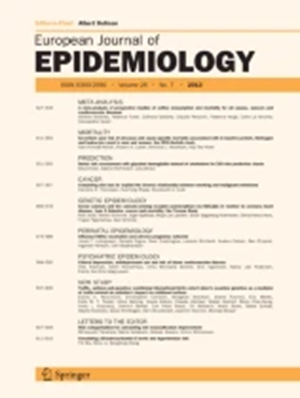与饮用高盐水相关的不良健康结果:一项系统评价。
IF 5.9
1区 医学
Q1 PUBLIC, ENVIRONMENTAL & OCCUPATIONAL HEALTH
引用次数: 0
摘要
在受气候变化影响的沿海地区,海平面上升、风暴潮、干旱和降雨改变正在显著提高饮用水源的含盐量。这是一个影响数百万人的重大公共卫生问题。根据PRISMA指南、ROBINS-E Cochrane工具和导航指南,我们系统地回顾和评估了高钠饮用水(bbb200毫克/升)与心血管、肾脏和妊娠相关不良健康结局之间关系的证据的强度和质量。从5个文献数据库中,我们确定了22项相关研究,其中一些研究评估了一个以上的健康领域。证据的质量和强度一般。来自8项低偏倚风险研究和4项中等偏倚风险研究的14项分析表明,饮用高盐度水与不良健康后果有关,包括高血压和心血管疾病、肾功能受损、妊娠期高血压和先兆子痫,以及婴儿死亡率较高。8项研究尚无定论。三项分析(其中两项偏倚风险较低)将饮用高盐度水与改善健康结果联系起来。总的来说,我们的研究结果表明,饮用水源的盐碱化可能会增加心血管、肾脏和妊娠相关的不良健康结果。这一结论强调了大规模有效和及时适应的重要性,并呼吁修订世卫组织关于从水中摄取盐的指南。世卫组织最新指南(2022年)没有为饮用水中的钠含量设定任何基于健康的标准,这一问题影响着数百万人,并将随着气候变化而恶化。本文章由计算机程序翻译,如有差异,请以英文原文为准。
Adverse health outcomes associated with drinking highly saline water: a systematic review.
In climate change-affected coastal areas, sea level rise, storm surges, droughts and altered rainfalls are significantly increasing salinity levels in drinking water sources. This is a major public health problem that affects many millions of people. We systematically reviewed and assessed the strength and quality of the evidence on the relationship between drinking water with high sodium levels (> 200 mgNa/l) and adverse cardiovascular, renal, and pregnancy-related health outcomes, following the PRISMA guidelines, the ROBINS-E Cochrane tool and the Navigation Guide. From five bibliographic databases, we identified 22 relevant studies, some of which assessed more than one health domain. The evidence was of moderate quality and strength. 14 analyses from eight studies at low risk of bias and four studies at moderate risk of bias, linked drinking high-salinity water to adverse health outcomes including hypertension and cardiovascular disease, impaired renal function, gestational hypertension and preeclampsia, and higher infant mortality. Eight studies were inconclusive. Three analyses, of which two at low risk of bias, associated drinking high-salinity water to improved health outcomes. Overall, our findings suggest that salinisation of drinking water sources is likely to increase adverse cardiovascular, renal, and pregnancy-related health outcomes. This conclusion highlights the importance of effective and timely adaptation at scale, and calls for a revision of the WHO guidelines for the intake of salt from water. The latest WHO guidelines (2022) do not set any health-based standard for sodium levels in drinking water, a problem that affects millions of people and will worsen with climate change.
求助全文
通过发布文献求助,成功后即可免费获取论文全文。
去求助
来源期刊

European Journal of Epidemiology
医学-公共卫生、环境卫生与职业卫生
CiteScore
21.40
自引率
1.50%
发文量
109
审稿时长
6-12 weeks
期刊介绍:
The European Journal of Epidemiology, established in 1985, is a peer-reviewed publication that provides a platform for discussions on epidemiology in its broadest sense. It covers various aspects of epidemiologic research and statistical methods. The journal facilitates communication between researchers, educators, and practitioners in epidemiology, including those in clinical and community medicine. Contributions from diverse fields such as public health, preventive medicine, clinical medicine, health economics, and computational biology and data science, in relation to health and disease, are encouraged. While accepting submissions from all over the world, the journal particularly emphasizes European topics relevant to epidemiology. The published articles consist of empirical research findings, developments in methodology, and opinion pieces.
 求助内容:
求助内容: 应助结果提醒方式:
应助结果提醒方式:


